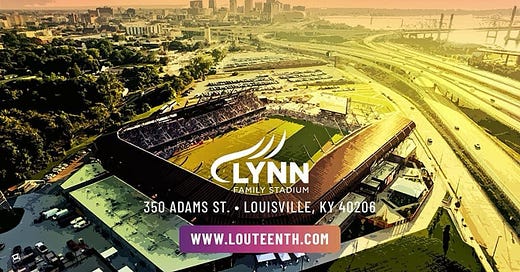Folks Will Mess Up Juneteenth...But That Doesn't Have to Be a Bad Thing
How to make mistakes into learning opportunities
Our Footnotes community has grown to over 16,000 subscribers. We are in the top 10 in the “History” category among all writers. But only a tiny fraction of people who read these articles actually become paid subscribers. Would you consider supporting this work today?
Juneteenth became a national holiday in 2021, marking the first new federal holiday since MLK Day became one back in 1983.
Now Juneteenth—the oldest celebration of Black emancipation from slavery in the country—would be celebrated nationwide.
No longer strictly confined to a single state (Texas where Juneteenth originated) or a single racial group, everyone throughout the land has an opportunity to commemorate and rejoice in the expansion of freedom.
But Juneteenth becoming a national holiday wasn’t an unadulterated triumph. Black people know how cultural phenomenon that originate with us can be co-opted when adopted by other groups.
The use and misuse of the word “woke” comes to mind as an example.
There is always the looming threat of whitewashing Juneteenth history—sanitizing the past to make it more palatable to fragile egos in the present.
But the certain misappropriation of Juneteenth does not have to be all bad. It can also be an occasion for education.
Recently, a Juneteenth planning committee received backlash for rebranding Juneteenth into “Louteenth.”
I know what you’re thinking.
“White people got hold of the holiday and are trying to strip it of its connection to slavery and racism. Here we go whitewashing again.”
Not this time.
When I first heard about “Louteenth” on Facebook, I suspected this was not a simple attempt to downplay an unsavory history. I thought a Black person or people might be involved at a leadership level, and I was right.
The board chairperson of the Louisville Junteenth Festival, Juan Lambert, is a Black man who knows the history and recognizes the significance of the holiday to Black people.
He and his team were trying to put on a Juneteenth event that felt both universal and particular to Louisville.
After social media backlash to the name change, he released a statement that read…
The renaming of the event was driven by a desire to celebrate and honor the unique cultural heritage and identity of our community. "Louteenth" was chosen as a way to pay homage to both the city of Louisville and the significance of Juneteenth in American history. However, we recognize that the change has caused unintended discord and apologize for any distress it may have caused.
To their credit, the organizers—who are not affiliated with the city government—rescinded the “Louteenth” name and will simply call it the '“Louisville Juneteenth Festival.”
I went on a local news station to talk about it. Read HERE or watch the video below.
Of course, these interviews only have time for sound bites, but I wanted to emphasize one point.
Every year in myriad ways we will have to deal with some attempt to distort, whitewash, or rebrand Juneteenth. It is simply inevitable as millions of people with different motives and experiences try to commemorate the holiday.
But these missteps need not be all bad. In fact, they can be valuable opportunities for learning.
While the attempt to rebrand Juneteenth as “Louteenth” stirred up outrage online, it also served as a useful occasion to remind people of the original intent and context of the celebration.
If we have the right mind about us, these mistakes do not simply have to be a source of anger but of education.
The people of Louisville, and anyone anywhere who pays attention to this episode, will be unlikely to attempt a name change in the near future. That is growth worthy of a brief period of confusion and consternation.
We have to, of course, be discerning. I would offer a far more pointed critique in cases where planners are genuinely trying to soften the story of slavery. I would still hope it turns into a learning experience, but you deal with good faith errors differently than bad faith ones.
Making Juneteenth a national holiday creates an annual ritual that forces us to look again at the history of slavery and freedom in this country so we can continually assess where we’ve come from and where we are going.
It’s already mid-May. What is happening in your community on Juneteenth? Do you have any concerns or causes for celebration? Comment below.
Did You Know? — Elias Camp Morris was the first president of the National Baptist Convention (USA, Inc.) which is the largest religious body of African Americans in the country . He led the denomination from 1895 when it was formed until his death in 1922. You can read more about him and dozens of other historical figures in my forthcoming book The Spirit of Justice: Stories of Faith, Race, and Resistance.





Congratulations Jemar...glad to be one of your paid subscribers.